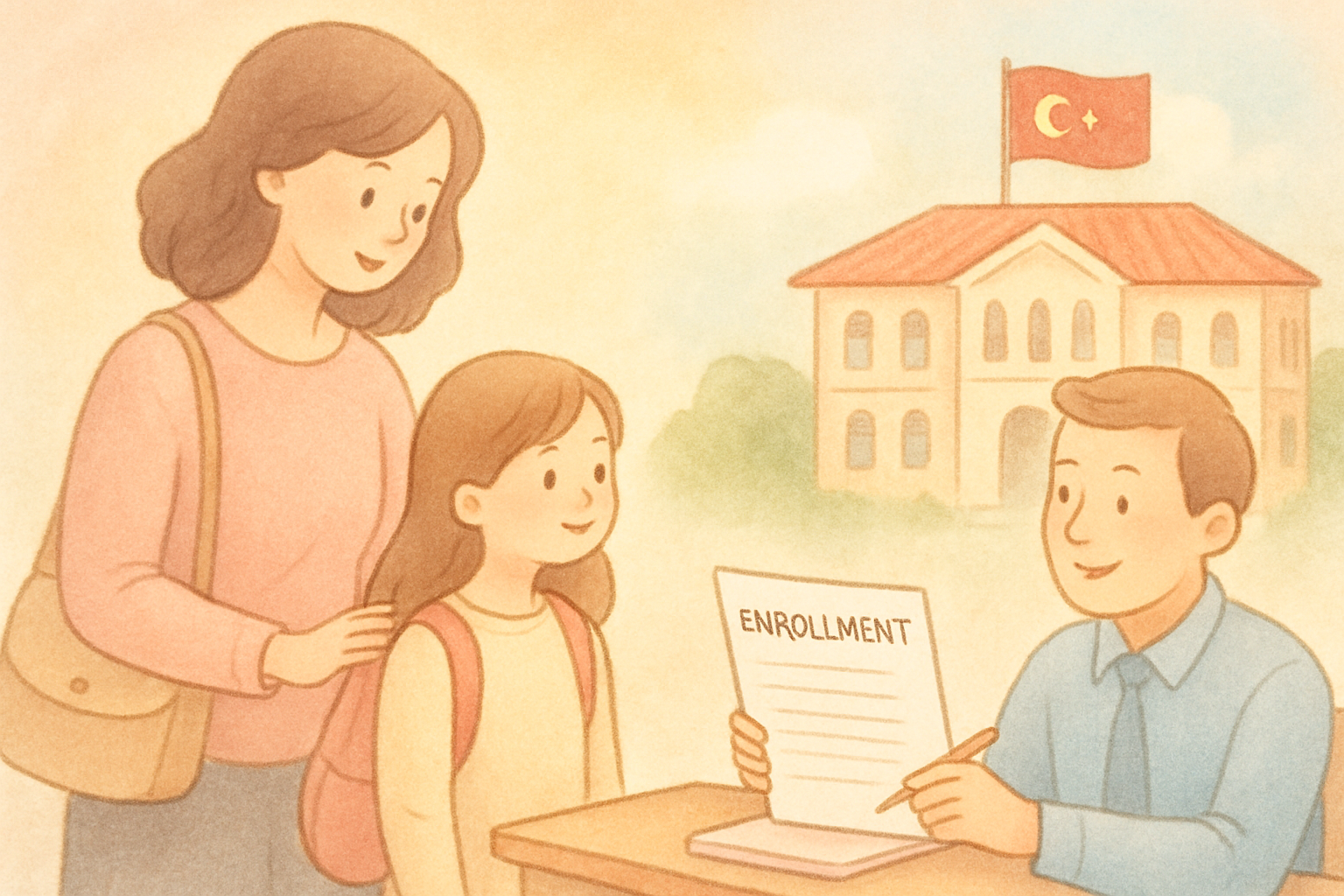Enrolling Your Child in a Turkish School: What to Know

Moving to a new country brings incredible opportunities, but for expat families, the question of how and where to educate their children looms large. In Turkey, the education landscape offers diverse options, each with its own regulations, processes, and advantages. Making the right decision not only sets your child up for academic success but also helps the entire family adapt faster to your new life here. Exploring Turkish schools can feel daunting at first, but with the right guidance, it becomes an adventure full of benefits.
Understanding the Turkish School System
Turkey has a structured national education system, overseen by the Ministry of National Education (Milli Eğitim Bakanlığı – MEB). The main stages are:
- Preschool (Anaokulu): Ages 3-5, optional but widely available
- Primary School (İlkokul): Grades 1-4, for ages 6-9
- Middle School (Ortaokul): Grades 5-8, for ages 10-13
- High School (Lise): Grades 9-12, for ages 14-17
Most Turkish children attend public schools, which offer a national curriculum taught mainly in Turkish. Private and international schools provide alternative curricula, such as International Baccalaureate or British A-levels, and may teach in English, French, or German.
Enrollment Requirements and Documentation
Registering your child in a Turkish school involves specific paperwork and steps, which can differ by school type. For public schools, you’ll need:
- Valid residence permit for your child
- Passport photocopy and recent photos
- Proof of address (rental contract or utility bill)
- Translated transcripts or report cards
- Health and vaccination records
Once you have these documents, visit the nearest public school or the local educational authority. Teachers or administrators will assess your child’s previous education to place them in the appropriate grade. For private or international schools, admissions offices typically provide a checklist, and some schools require entrance exams or interviews.
To speed up enrollment and reduce frustration, bring both originals and notarized translations of all important documents. Should you need assistance, municipal expat support centers or educational consultants in larger Turkish cities can help guide you through the process.
Language Support and Integration Programs
A key consideration is the language of instruction. In Turkish public schools, all lessons are taught in Turkish. Many schools offer a preparatory year of Turkish language instruction for non-Turkish speaking students, especially in bigger cities like Istanbul, Ankara, and Izmir.
International and some private schools use English or other foreign languages as the medium of teaching, making them a popular choice for children without prior Turkish exposure. However, public schools often work hard to help expat kids catch up linguistically. For example:
- Extra Turkish language classes after school
- Buddy systems that pair new arrivals with local classmates
- Counseling for cultural adjustment
Many parents discover that their children pick up Turkish quickly due to daily immersion. This skill is a lifelong asset, helping your child make friends, understand local culture, and adapt smoothly to Turkish life.
Comparing Public, Private, and International Schools
Choosing between school types depends on your child’s age, language ability, educational goals, and your family’s long-term plans in Turkey.
- Public Schools: Free for residents, large class sizes, strong community atmosphere, and an authentic Turkish environment. Great for language immersion and cultural integration.
- Private Schools: Offer bilingual programs, smaller classes, and enhanced extracurricular opportunities. They usually follow a mix of Turkish and international curricula.
- International Schools: Ideal for short-term stays or families planning to move again. Curricula are internationally recognized, easing transitions between countries. Higher fees but offer familiarity for expat children.
For example, if you plan to stay in Turkey long-term and want your child to speak fluent Turkish, public or private Turkish schools deliver more immersion. For families on a diplomatic or international assignment, international schools can provide continuity.
Tackling Day-to-Day Challenges and Celebrating Wins
The first days at a Turkish school can feel overwhelming for both child and parent. Most schools help expat families acclimatize by encouraging parent-teacher communication and organizing orientation sessions. Your child may face challenges such as language barriers or adjusting to new classroom routines.
- Get involved in school events and join parent associations
- Encourage after-school activities like sports or arts for social connections
- Use digital language-learning tools at home
- Maintain open communication with teachers
Many expat families soon discover that Turkish schools are welcoming and inclusive, with strong traditions of hospitality. As your child gains confidence and language skills, school becomes a place of discovery and joy. Overcoming the initial hurdles leads to meaningful friendships and a deep understanding of Turkish culture—a benefit that can last a lifetime.
By understanding the enrollment process, exploring your options, and providing the right support, you give your child—and your whole family—the best possible start in your Turkish adventure.

hi my name is hibo iam parent with two kids i want to join the school with